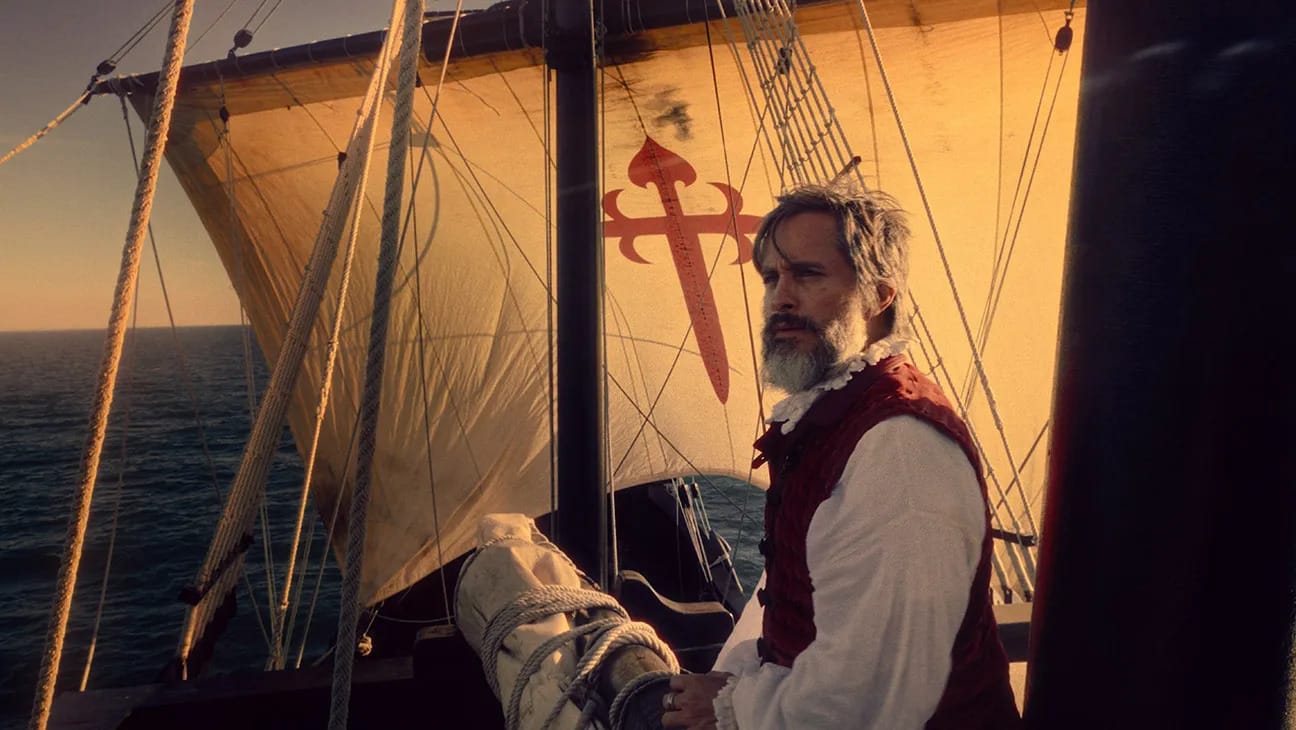Magellan
“He was a motherfucker.”

Live from the 2025 Toronto International Film Festival.
“He was a motherfucker.” That’s what Lav Diaz said about Ferdinand Magellan in his Q&A at the 2025 Toronto International Film Festival. He also called Putin and Duterte “motherfuckers” for those keeping track at home.
Diaz, the (in)famous Filipino director behind the most mammoth slow cinema films to ever actually find an audience, makes his most commercial film so far in Magellan, a selective biographical depiction of the last two decades of Ferdinand Magellan’s life. It’s shot in color and has one of the director’s shortest ever runtimes at a mere two hours and forty minutes—apparently, there is a nine-hour cut on the way though. Gael García Bernal is a professional actor worthy of international recognition and Magellan (played by Bernal) himself is also an infamous enough explorer and colonizer to cast a wider net with audiences. His name is one that most educated citizens in the West should know.
The film orbits around the Portuguese conqueror Ferdinand Magellan, one of the devilish figures to ignite the fire for colonial modernity. But Diaz spends more time with the indigenous people (and victims of Portuguese violence) in Malaysia, Indonesia, and then finally the Philippines, where the conqueror would die in battle in 1521 in Mactan shortly after forcibly converting thousands of natives to Christianity. The most popular historiographies say Lapulapu, the chief of Mactan, killed him. There is no Lapulapu in Magellan though; Diaz reduces the killer from a historical person to a mythical creature of the night meant to scare Magellan and make him an easier target for his actual killers. In the Q&A, Diaz attributed the famed killer to contemporary national mythmaking shortly before muttering, “Duterte is a motherfucker.” The political angle here—claiming that the Philippines' “first national hero” wasn’t real—didn’t stop the country from selecting the film to represent it at the Academy Awards.
Even with the shorter runtime, Diaz maintains his signature stationary deep focus, long shots, and a minimalist score to erode the viewer’s thirst for instant gratification and dramaturgy. His emphasis on temporality makes the signature long voyage last forever, allowing viewers to come as close as ever to weathering the unrelenting durations of pre-modern sea voyages. The nine-hour cut may end up being the most painful cinematic boat ride ever if it’s any longer. The people suffering the voyage are the Portuguese and this isn’t an anomaly in Magellan. Diaz avoids reducing the titular character, the other Portuguese nobles and explorers, and the important church figures into caricatures that you might find on the Instagram brand of “post-colonialism.” One of the best scenes in the film is a teary-eyed Magellan gifting an icon of a brown baby Christ to a mother whose child is dying. In the moment, his desire to do good for this family and to help them is earnest.
That’s the genius of Magellan. He is a man just like us in many ways. He has a wife and children, he gets embarrassed by his erection, and he gossips about the monarch behind his back. One Filipino critic, Paul Enicola, adds that “in dismantling Lapu-Lapu’s legend, Diaz also de-mythifies Ferdinand Magellan.” In the hermeneutical task of demythologizing Filipino history, Magellan sits in the uncomfortable spaces after violence, after atrocities instead of deflecting viewer emotions elsewhere. It makes personal contemplation inevitable. And it’s impossible to endure Magellan and walk away with any sympathy reserved for the old colonial myths we were told in schools.
In other words, “he was a motherfucker.”